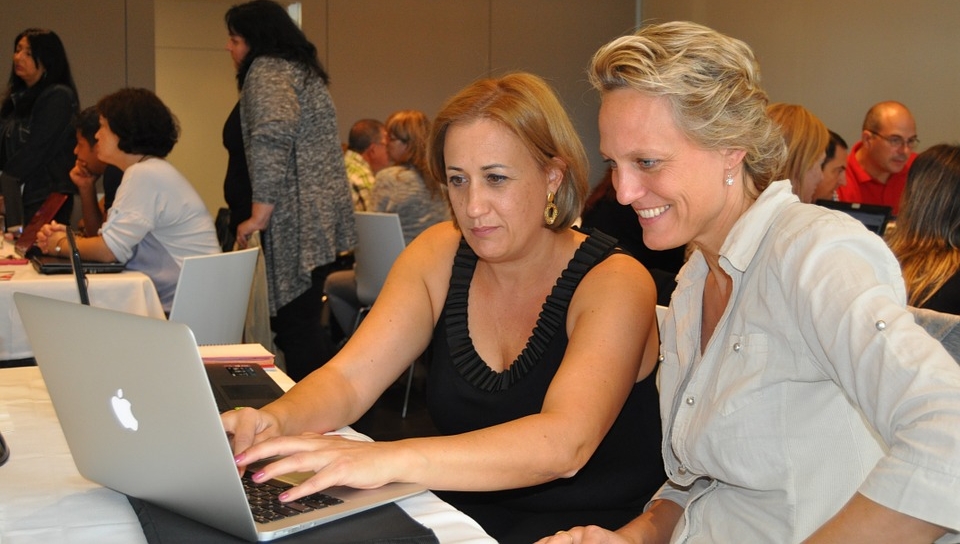We don't just give gifts for Christmas and birthdays. We are more and more inclined, sometimes even love to give the children joy with gifts whenever possible. We love happy children, don't we? There is some very important information on this subject that is extremely important to us parents and grandparents.
The Challenge
In our western civilization, at least, we are so well off that gifts are a valuable way of bringing joy to people, especially children. We can afford it.
Not only do we know that, but also the advertising and sales industries. Anyone who wants to sell something thinks carefully about how and to whom they want to sell a product. Children are of course a welcome customer.
There are still powerful and superior who allow their rule to be expanded. Whoever wants to gain power over others today no longer needs to wage war. He can try offers with seductive gifts. The ones who are most easily seduced in this regard are the children. They have not yet developed weapons against such seducers. Children can easily be made dependent on gifts that meet their needs.
Such seduction is a particularly perfidious one. It endangers our children and even our lives in this world.
What do we offer our children when it comes to preparing them for a positive future? Statistics say that one in ten students needs psychotherapeutic / psychiatric treatment. A quarter suffers from high blood pressure, extreme obesity, diabetes or other physical illnesses, a lack of concentration, anxiety disorders, and a lack of social behavior.
Apparently we as parents fail to strengthen them, all too often we weaken them. We need help.
2 Basic Needs of Children
The Language of the Eyes
Children are so perfectly natural with their eyes that it is easy to tell whether they are happy, sad, hungry, or angry. We adults learned to hide our feelings. In certain cultures one cannot look one another in the eye. It's a taboo there.
So sweet!! Happy children's eyes are so impressive that the bright children's eyes are often used as an advertising motif in sales. When children get the present they long for, their eyes light up. Children not only speak with their gaze, they can also read our expressions very well. Let us look more consciously at the children's eyes and try to understand them better and better.
1. Basic Need
One of the most important - if not the most important basic needs for children - is the close bond with their mother. If children are left alone, they die within. The mother cannot be completely replaced by someone else.
A child can read the longing for connection between adults and children immediately. It will seek and live out this bond.
Through a strong bond, the child develops the ability to love, which it later needs in order to be able to build happy relationships.
2. Basic Need
Another basic need for children is to practice their learning skills. You want to develop, explore, try out and try out new things. You are totally intrinsically motivated (BLOG) and want to get to know the immediate environment first, later the whole world and want to assert yourself in it. This striving for autonomy needs to be supported and protected.
These two elements of life determine their development. You need both every day, even every hour. The more they are positively accompanied in this, the stronger they can become.
Can you imagine that there could be gifts that could change, even destroy, these two basic needs? If children can build a tower until they finally succeed, what other toys are still needed? Can our children still look for what they need to be happy themselves?
A salesperson is far less interested in supporting the child in these needs than in their own financial gain. Toy advertising is interested in HAVING and not BEING. The more we have, the happier we should be, they say.
Our consumer society ensures that we are focused on goods, on owning. But our family shows us that there are other very important areas in which we should invest, namely:
Warmth, care, tenderness, nourishment, affection and appreciation are part of it. Ultimately, it's about love. How can you give these areas as a gift, pass them on in such a way that it arrives on the other side as real love? Unfortunately, many parents fail to do this. They think they love their children. However, despite all possible efforts, they do not get their love tank filled because their basic needs have not been reached.
Children need the most important gift in order to be well prepared for their life. If this does not succeed, they become victims of our postmodernism.
Why We Give Presents to our Children
Giving is part of social life and confirms the bond with one another. Attention and gratitude are important to us, perhaps also a gift in return with which a business is created.
Purpose-built
The way we give a gift often shows whether it is a behavioral reward or a motivation for certain behavior. We often associate giving with an intention. Performance for consideration. "I'm giving you this so ..." shows that there is an intention behind a gift. The child senses that something is wrong. They may not even understand the words, but the facial expressions and key will tell them.
Children like to accept gifts that are particularly attractive. A gift can be attractive because the gift gives it more recognition among its peer group.
Whoever tries hard to be noticed and admired by a child pursues this intention by means of a gift. Many give something to children so that they will love or like them. Is that good for the child? It shows the parental inability to love the child without intent. Unconditional love is often in short supply (BLOG).
Motivation Fear
Gifts to help children learn better obedience are often double-edged. The parents think that the children are better off with it. Gifts are hidden seduction here. Behind this is the fear that the child will not be able to succeed later. That is why such parents pave the way to success for their children with gifts. But will the children really be successful with it? If there weren't any better methods.
Motivation Independence
With praise, gifts and recognition, parents try to become companions on a partnership basis. Parents do not trust their children to sometimes find their way alone. This world must be opened up to children so that they learn to get to know their talents and to experience how they can use them even without adults:
Feeling responsible for animals and people, including things, is an important experience. It develops confidence in self-competence (BLOG). This is shown in the special ability to apologize once if necessary. That would be an educational compliment.
Motivation Money
Children receive gifts from everyone who wants to please them. But also from those who want to influence their lives. It's not about sympathy, but making money with children and thanks to them. It's not about doing good for the children. It's about using the art of seduction optimally so that the cash register is full. Often these child seducers are not recognized. They don't give the gift to the children themselves, but the adults buy their products such as toys and confectionery. This is one of the most perfidious machines of seduction in mankind.
Two Examples
“What tastes sweet is good,” say the children. Sugar usually has a negative impact on the brain. It makes them think they are happy now thanks to dopamine. Candy makers know that. Almost all foods contain sugar. The children like that. Whoever buys these kinds of things makes himself the stooge of such seducers. Often, 'healthy' foods also contain sugar.
Colors in themselves are another attractant. Colorful, shimmering products attract. If movement, tone and shine are connected with this, then the child is at the mercy of it. A smartphone or tablet is hard to beat. The children are immediately enthusiastic. No chance for parents to protect them from such attraction. It is almost impossible to withhold them from them as they are available everywhere. Withholding them makes them even more attractive. A big challenge!
A ball to play with, a cat to stroke and then lots of nature. That is healthy.
Giving is part of social life and confirms the bond with one another. Attention and gratitude are important to us, perhaps also a gift in return with which a business is created. Tit for tat!
Children also learn to give from us. Especially if that is also part of their love language (BLOG), then they can go a long way.
Unfortunately, too many children are heavy confectionery consumers. The Parental Challenge: What Could Be a Good Replacement? Maybe a game or story together?
Colors in themselves are another attractant. Colorful, shimmering products attract. If movement, tone and shine are connected with this, then the child is at the mercy. A smartphone or tablet is hard to beat. The children are immediately enthusiastic. No chance for parents to protect them from such attraction. It is almost impossible to withhold them from them as they are available everywhere. Withholding them makes them even more attractive. A big challenge!
Continuation follows
Thoughts from the book by Gerald Hüther and André Stern “What do we give our children”



























